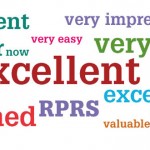Martin Pickard from GrantCraft came to the university last week to deliver grant writing workshops focusing on applying to the research councils. Martin has an excellent track record of helping universities win funding and provided some top tips on how to prepare a better application. His main aim was to encourage participants to start thinking of applications as a sales document – how to make an impact with every part of the application and convince the funder to ‘buy’ the research. Fundamentally your research doesn’t change but it’s how you package it that matters.
One of the things that Martin advised was that when you give your applications to colleagues to review ask them to give you 10 reasons why they wouldn’t fund it. You may not agree with everything they say but it gives you some constructive feedback and can help you think about whether you have fully defended your project. The people reviewing your application for the funder may not be as close to the field as you and everyone has had those comments from reviewers where you wonder if they have a clue. Don’t give your reviewers a chance to think, give them all the answers even if you think it’s obvious.
The other big message from Martin’s sessions was that you need to think about what the overarching problem is that your research is addressing and make that clear from the start. This is bigger that just the research need that you are addressing and you need to think outside the box! Once you start to think bigger, about where your research fits within other research, with practitioners and within society, it makes the section on impact much simpler because the message is there throughout your application.
And finally give yourself enough time…to think about it, prepare several drafts and get feedback from colleagues.
Martin is coming back in the new year to deliver a few more sessions. In January he is running a session aimed at staff preparing their first research grant and in February he is running two sessions on EU funding – one particularly looking at the Marie Curie scheme and the other at EU funding in general. If you’re interested in attending these sessions please contact Susan Dowdle from the Research Development Unit.
 MRC offers tips for writing a grant review – useful for all!
MRC offers tips for writing a grant review – useful for all!










 Expand Your Impact: Collaboration and Networking Workshops for Researchers
Expand Your Impact: Collaboration and Networking Workshops for Researchers Visiting Prof. Sujan Marahatta presenting at BU
Visiting Prof. Sujan Marahatta presenting at BU 3C Event: Research Culture, Community & Can you Guess Who? Thursday 26 March 1-2pm
3C Event: Research Culture, Community & Can you Guess Who? Thursday 26 March 1-2pm UKCGE Recognised Research Supervision Programme: Deadline Approaching
UKCGE Recognised Research Supervision Programme: Deadline Approaching ECR Funding Open Call: Research Culture & Community Grant – Apply now
ECR Funding Open Call: Research Culture & Community Grant – Apply now ECR Funding Open Call: Research Culture & Community Grant – Application Deadline Friday 12 December
ECR Funding Open Call: Research Culture & Community Grant – Application Deadline Friday 12 December MSCA Postdoctoral Fellowships 2025 Call
MSCA Postdoctoral Fellowships 2025 Call ERC Advanced Grant 2025 Webinar
ERC Advanced Grant 2025 Webinar Update on UKRO services
Update on UKRO services European research project exploring use of ‘virtual twins’ to better manage metabolic associated fatty liver disease
European research project exploring use of ‘virtual twins’ to better manage metabolic associated fatty liver disease